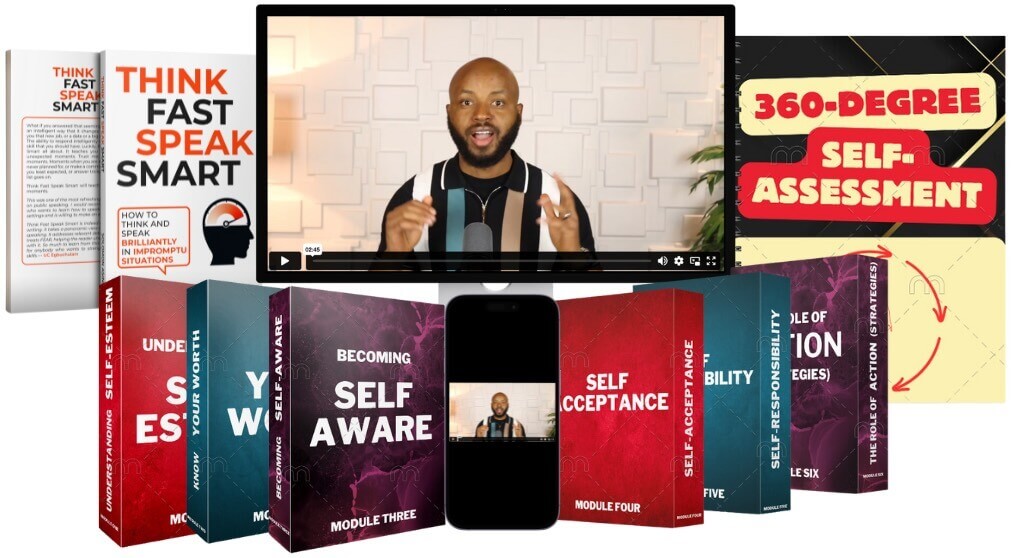
Leaving a Toxic Job: 10 Steps to Get Out
Have you ever found yourself stuck in a job that drains the life out of you? A challenging 9 to 5 job can be difficult
Have you ever witnessed a conversation that started with, for example, “Can you please pass me that pen,” and ended with “You son of a b***h,” “Go to hell,” “You are very stupid,” and other curse phrases in the books?
Such a scenario is only possible when both parties lack social intelligence. When you are socially intelligent, you are skilled at defusing a potentially intense conversation. You know precisely how to deescalate seemingly uncontrollable social upheaval.
First, what is social intelligence?
Here are some definitions of social intelligence:
It is a person’s competence to understand his or her environment optimally and react appropriately for socially successful conduct.
It is the ability to build relationships and navigate social environments successfully.
It is the potential of an individual to interpret and comprehend their social environment and establish meaningful relationships with others.
It is the ability to understand and connect with others.
Social intelligence was first defined in 1920 by Edward Thorndike Edward as “the ability to understand and manage men and women and boys and girls, to act wisely in human relations.”
You can read my article on “What is social intelligence” to get a deeper understanding of the concept.
Secondly, how can you improve your social intelligence? I have put together nine proven ways that can help you improve your social intelligence.
For you to be able to manage, understand, and connect with other people, it is essential first to understand yourself. Take inventory of your strengths and weaknesses, particularly as it relates to your social skills. How would you rate your confidence in social situations? Do you find it challenging to initiate a conversation with a stranger? Are you sensitive to people’s feelings and thoughts? Properly evaluate yourself. Here is something else you should do. To prevent the Dunning–Kruger effect (the cognitive bias in which people with low ability at a task overestimate their ability) from invalidating your assessment/results, ask friends, family, and associates for feedback based on the questions you come up with. When you have a clear picture of where you are, then you can walk your way up the social intelligence scale.

When confidence is absent, nothing else matters. I am not about arrogance or pride, but confidence (I am sure you know the difference). Confidence is like the gas that sustains social intelligence. When you have low self-esteem (which is the foundation of low self-confidence), it not only reflects on the outside, it also affects your body language. It affects your ability to initiate a sustain a conversation, your willingness to get involved in social situations and to make new connections, your ability to build on key relationships, and the list go on. So, this is a significant step in your effort to improve your social intelligence. However, if you trust that you have a healthy dose of confidence, then you can check this box.
If you are a man, the way you approach a lady would be very different from how you approach a man. The way you talk to a teenager is different from the way you speak to a senior. A statement that makes an American excited could upset an Indian. The bottom line is that people are different, and it is important to understand these differences and act accordingly. The whole essence of social intelligence is managing, connecting, and building relationships with people. So, how do you manage, connect, and build a relationship with something you don’t understand? Action point: Learn about the differences that exist in humans.
I know you are sometimes itchy to get your point across, but your point will be more meaningful and impactful when it comes from a place of complete understanding of the position of your conversation partner. And for you to understand your conversation partner, you must listen actively. Listen to understand their point of view. Listen without bias. Listen unselfishly. Active listening facilitates rapport and deep connection. I know its difficult to listen in this age of endless distractions, but it is an important skill to learn. So, next time when you feel the need to hijack a conversation, pause and remind yourself of the need to listen.
When I say, “practice empathy,” you might want to ask, how do you do that? Empathy is a word that we use very often, but it is not as easy to do as it sounds. For example, if you are from a wealthy family and enjoyed a surplus of everything all your life, it would be almost impossible to relate with someone that tells you about their lack or unfortunate financial situation. Or, if you don’t have a child or have helped raise one, it would be difficult to relate when someone with a child tells you about the stress and pressure that come with parenting. So, there is more to the word “empathy.” It takes sound questioning skills, a strong imagination, and sometimes immersing yourself in the situation.
Nevertheless, to improve your social intelligence, you need to be able to empathize. You must learn to understand how people feel; this will give you a clearer insight into how they think. Empathy is an essential aspect of social intelligence.
This is a significant point. Some other items in this article fall under communication, like, listening, body language. The strength of your communication skills is critical when working to improve your social intelligence. And mind you, communication is not just knowing how to speak correct English, it’s about knowing what to say, how to say it. It is about your eye contact, your body language, your handshake (I hope Covid-19 doesn’t throw it out of fashion). There is a lot to do when it comes to improving your communication skills. It is, however, essential to look at the areas that you are good at and the areas that need improvement.
The subject of body language is both a tough but important one. It is tough because most people struggle to improve their body language, and it is important because it is one way you tell people about yourself without opening your mouth. Your body language can say, “I am tired,” “I am depressed,” “I need attention, “I am shy,” “I am scared,” etc. even when your mouth is closed. So, it is necessary to be able to communicate what you want people to know about you with your body language, instead of allowing it to give out information that you don’t intend to share.
If you want people to be interested in you, be interested in them. Like beget like. And mind you, people can spot when you are fake, so what you want to do is develop a genuine interest in people. This attitude accelerates the bond-building process, it enables a deep connection, it results in a more heartfelt conversation, and it creates a fertile ground for a healthy and lasting relationship.
It will difficult to make significant progress if you don’t take out time to reflect on your actions. Find a safe and private space to reflect on your actions. Your private space could be your study room, your bedroom, your car, or any place that is free from distraction. For example, after a networking event, go to your space and reflect on what transpired. Ask yourself important questions like; what went well? What opportunity did I miss? What went wrong? What would I have done differently? What did I learn from my interactions? Take note of your answers and work on the areas that need improvement.
Any significant behavioral change takes time and effort, and improving social intelligence is no exception. However, the benefit of having high social intelligence is worth the time and effort. So, I encourage you to assess your social skills. Use the help of those you trust to give you genuine feedback; friends, family, associates. Take note of the areas where you are strong and the areas that need improvement. Then make a conscious daily effort to reinforce the areas where you are strong and strengthen the areas where you are weak. You will be shocked at how much you will improve in no distant time.

To empower you to cultivate a strong self-esteem that transforms your relationships and equips you to overcome life’s obstacles with resilience
New!!! Free Training Replay in...
Check out our latest articles. Boost your social intelligence

Have you ever found yourself stuck in a job that drains the life out of you? A challenging 9 to 5 job can be difficult

You can express yourself confidently without feeling shy or experiencing burnout. Here is how to exude confidence as an introvert. As an introvert, maintaining your

Anyone, including introverts, can live an interesting and fun-filled life. Here is how to be interesting as an introvert. Generally, many people believe that introverts

We sometimes wonder if going into a relationship with a fellow introvert is a good idea. I mean, won’t the relationship be as boring as hell? Maybe not really!

Are you ready to get out of your shell to start your dream business? Here is how to be an entrepreneur as an introvert and become successful!

As an introvert, you might be wondering if you really can become successful as a business owner. Read on to know how business success works for introverts.

Sign up for our mailing list and you will receive the first chapter free!
By signing up, you agree to our terms and privacy policy.
Warning: Apply The Methods in This Training Responsibly

Sign up for our mailing list and get the first chapter for free!
By signing up, you agree to our terms and privacy policy